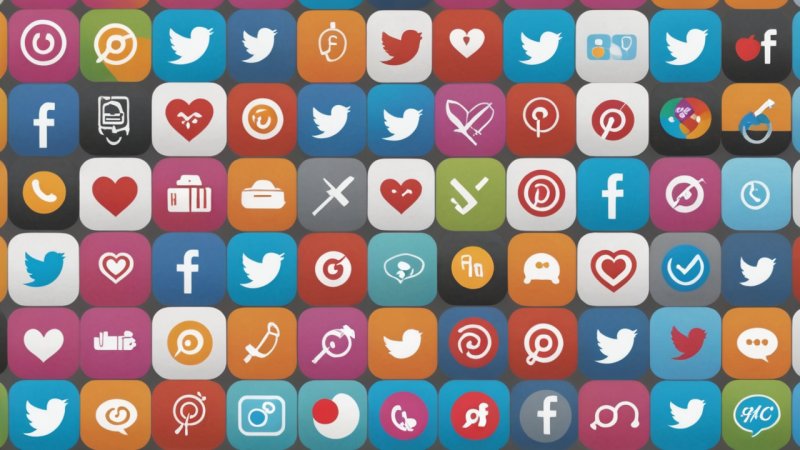In the digital age, social media has become a ubiquitous part of daily life, influencing various aspects of our existence, including our health behaviors. From fitness trends to mental health discussions, social media platforms serve as both a source of information and a space for community engagement. As users scroll through their feeds, they encounter a plethora of health-related content that can shape their perceptions, attitudes, and ultimately their behaviors regarding health. This article delves into the multifaceted ways social media influences health behaviors, examining both the positive and negative implications for individuals and society.
Understanding Social Media's Role in Health Communication
Social media has transformed the landscape of health communication, allowing for real-time sharing of information and experiences. Platforms like Facebook, Instagram, Twitter, and TikTok provide a stage for health professionals, influencers, and everyday users to disseminate knowledge about health issues, wellness tips, and personal stories. This democratization of information can empower individuals to take charge of their health, encouraging them to seek advice, share experiences, and connect with others facing similar challenges.
Positive Influences on Health Behaviors
One of the most significant benefits of social media is its ability to promote positive health behaviors. Numerous studies have shown that social media campaigns can effectively encourage healthy lifestyle choices. For instance, fitness challenges shared on platforms like Instagram can motivate users to engage in physical activity, leading to increased exercise and better overall health. Similarly, public health campaigns that utilize social media to spread awareness about vaccination, smoking cessation, or healthy eating have been shown to improve community health outcomes.
Moreover, social media provides a supportive environment for individuals dealing with chronic illnesses or mental health conditions. Online support groups and forums allow users to share their experiences, seek advice, and offer encouragement to one another. This sense of community can be invaluable, fostering resilience and promoting adherence to treatment plans.
The Dark Side of Social Media: Misinformation and Negative Health Behaviors
Despite its potential for positive influence, social media also poses significant risks, particularly concerning misinformation. The rapid spread of inaccurate health information can lead to harmful behaviors. For example, the anti-vaccine movement gained traction on social media, resulting in decreased vaccination rates and subsequent outbreaks of preventable diseases. Similarly, misleading diet trends and health fads can encourage dangerous practices, such as extreme dieting or the use of unregulated supplements.
Additionally, social media can contribute to negative health behaviors by promoting unrealistic body standards and lifestyle comparisons. The prevalence of edited images and curated lifestyles can lead to body dissatisfaction, anxiety, and depression, particularly among younger users. This phenomenon, often referred to as “social media envy,” can drive individuals to engage in unhealthy habits in pursuit of an idealized image.
Strategies for Navigating Social Media Health Content
Given the dual nature of social media's impact on health behaviors, it is crucial for users to develop critical skills for navigating health-related content. Here are some strategies to consider:
- Verify Information: Always cross-check health information with reputable sources, such as government health agencies, academic institutions, or recognized medical organizations.
- Follow Credible Accounts: Seek out health professionals, organizations, and researchers who share evidence-based information. This can help filter out misinformation.
- Engage Responsibly: When sharing health-related content, consider the impact it may have on your audience. Promote positive behaviors and accurate information.
- Be Mindful of Comparisons: Recognize that social media often portrays an unrealistic version of life. Focus on your own health journey rather than comparing yourself to others.
The Future of Social Media and Health Behaviors
As social media continues to evolve, its influence on health behaviors will likely grow. Emerging technologies, such as artificial intelligence and virtual reality, may further enhance the way health information is shared and consumed. For instance, AI-driven chatbots could provide personalized health advice, while virtual reality could offer immersive experiences for health education.
However, with these advancements comes the responsibility to ensure that the information shared remains accurate and beneficial. Collaboration between social media platforms, health professionals, and researchers will be essential in creating a safe and informative online environment for health discussions.
Conclusion
Social media is a powerful tool that can significantly influence health behaviors, for better or worse. While it offers opportunities for positive engagement, education, and community support, it also presents challenges related to misinformation and unhealthy comparisons. By fostering critical thinking and promoting responsible sharing, individuals can harness the benefits of social media while mitigating its risks. As we navigate this ever-changing digital landscape, understanding the dynamics of social media's impact on health behaviors will be crucial for both personal well-being and public health.






